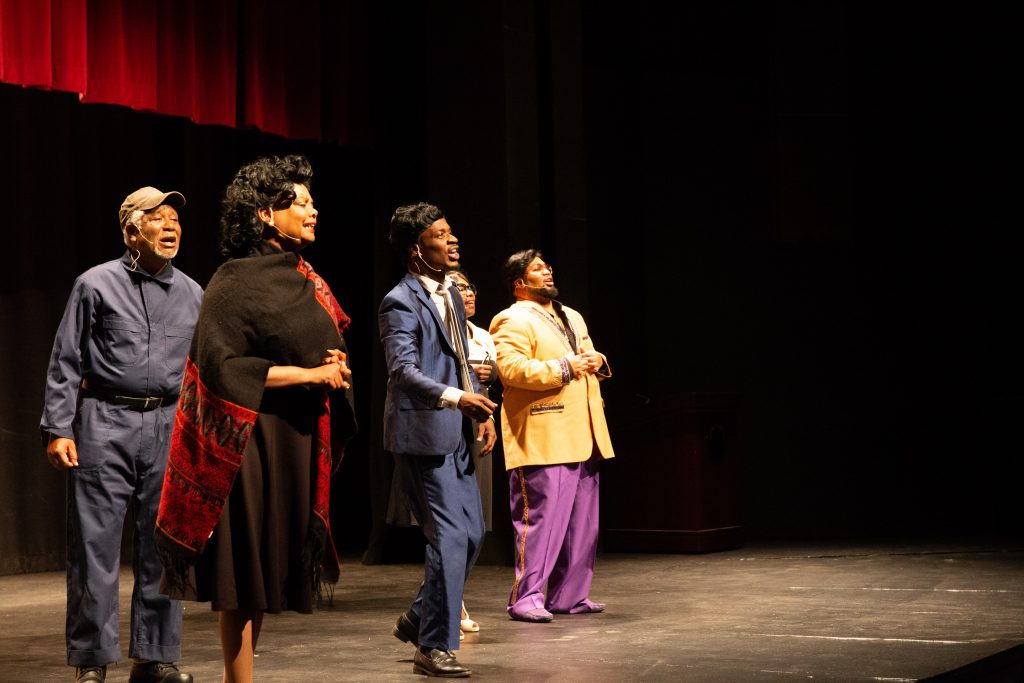
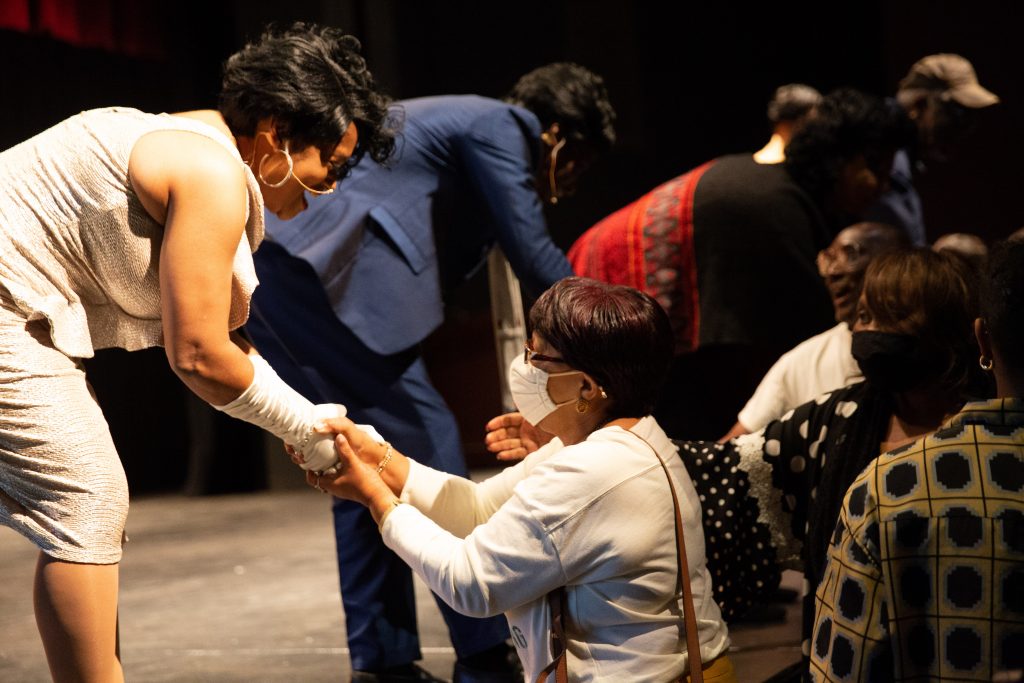
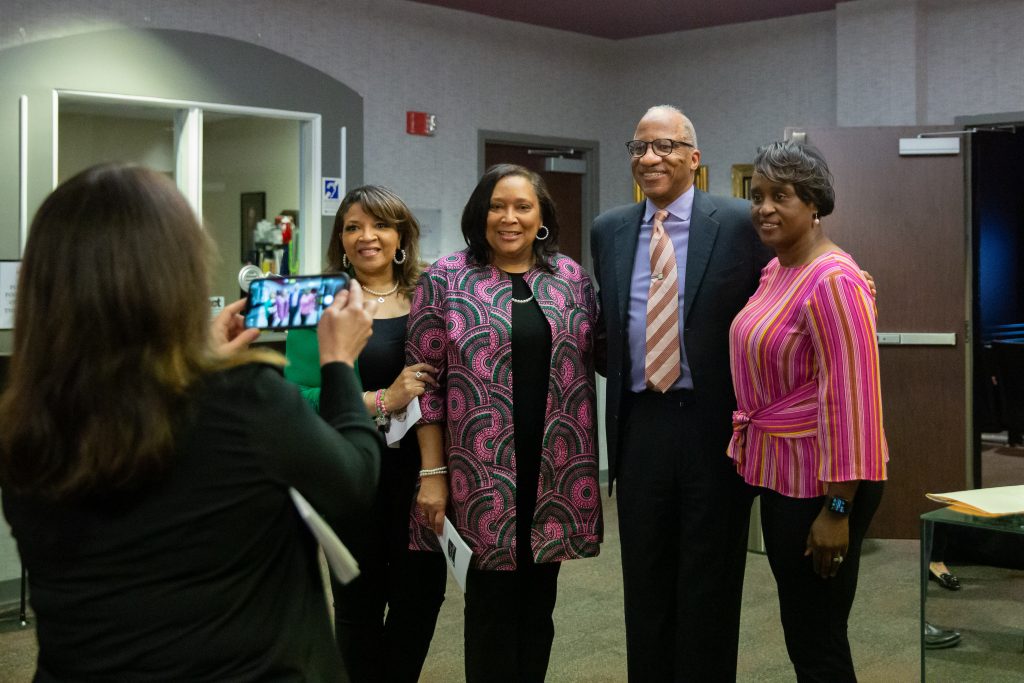
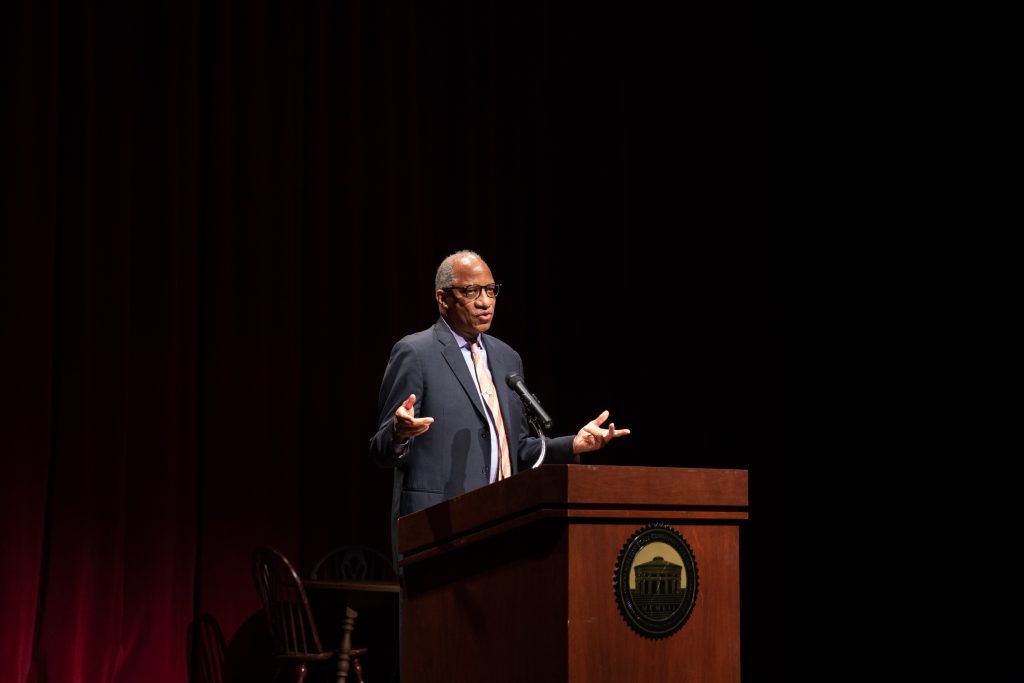
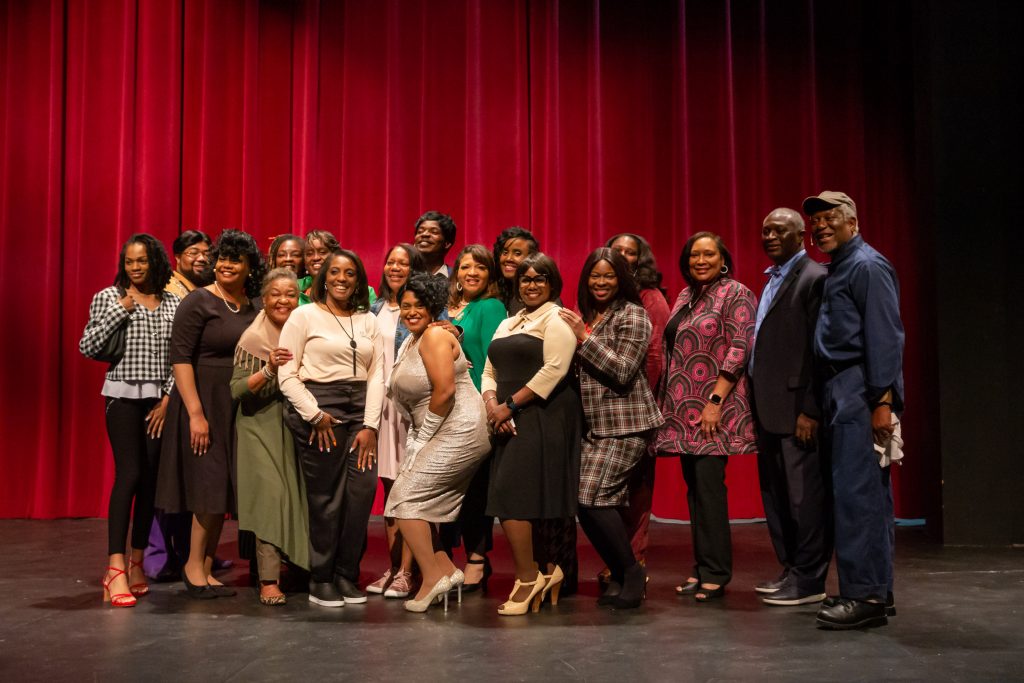
Author: Dr. Elisabetta Zengaro | Communications Specialist, Division of Community Affairs
On April 4, 2022, 54 years after Dr. Martin Luther King Jr.’s assassination, those sitting in the Bean Brown Theater at Shelton State Community College were reminded of the 1968 Memphis sanitation workers’ legacy during the Realizing the Dream (RTD) combined lecture and performing arts series, featuring cultural historian Wil Haygood and a performance of George W. Stewart’s socio-drama, King and the 1300.
Presented by Stillman College and Shelton State, two of the three RTD Coordinating Committee institutions, the events occurred back-to-back, a first in Realizing the Dream history.
Haygood’s Lecture4:00pm
Reception5:30pm
Play6:00pm
History
During the 30th anniversary of King’s assassination, a young journalist was tasked with writing an article commemorating the event. Wondering what happened to the sanitation workers at the forefront, he traveled to Memphis. At the union hall of the sanitation department, the journalist asked about the sanitation workers.
[The man there] said, ‘There are still 12 men in this city on the sanitation trucks who marched with King. They consider it their duty to remain on those trucks. And right then I said to myself, ‘I’m going to find every one of them. I’m going to find them in their trucks, and I’m going to have their voices in this story.’
Recalled by Haygood
Haygood then shared the story he wrote about those 12 sanitation workers; the patriots, he said. Men who bent down, so others could stand.
It was the men in Memphis who bent down in the gutters to pick up the garbage to earn a living in the boundaries of the law in a nation that didn’t always love them. Some of those men had fought in World War II for a nation that would have lynched them. The definition of a patriot. All they asked of America is that you treat us as men.
Said by Haygood
Haygood earned a Martin Luther King scholarship to study journalism at Miami University. He has served as a national and foreign correspondent for The Washington Post and The Boston Globe and chronicled America’s civil rights journey through biographies of Thurgood Marshall, Adam Clayton Powell Jr., Sammy Davis Jr., Sugar Ray Robinson and Eugene Allen, the real-life inspiration for Lee Daniels’ award-winning film, The Butler.
Of all the stories that I’ve written in my journalism career, [I’ve] been all over the world, watched Nelson Mandela walk out of prison. The story that I keep coming back to is this story, Memphis. The garbage men. I stand as a man because of them.*
Said by Haygood
Following the lecture, Haygood participated in a brief Q & A with the audience.
King and the 1300
Under the direction of Stewart and featuring the American Gospel Quartet Convention, Inc., and Last Psalm Productions, King and the 1300 is a tribute to King and the 1,300 Memphis sanitation workers who invited him to Memphis in 1968.
It’s kind of like a mandate that we leave inspired to not let the bravery and not let the sacrifice of the 1,300 sanitations workers and, of course Dr. King, die. Those gentleman were certainly brave, bold and willing to pay the price for a better day. Thank you again, the Realizing the Dream Committee. Dr. Samory Pruitt, we will be forever grateful to you for allowing us to tell this tory throughout this country and throughout this work.
Said by Stewart, addressing the audience before the start of the performance
The play tells the story through the household of a fictitious sanitation worker’s life. Although the incidences in the story are factual, they are woven with the events of the visit of a brother-in-law who comes to Memphis to get involved in the exploding music scene. The brother-in- law’s dreams of personal stardom conflict with the bigger picture behind the sanitation movement.
Most of the setting takes place in the couple’s Memphis home, interspersed with archival footage of King’s speeches to coincide with the historical events taking place. The climax occurs at the Lorraine Motel where King was assassinated. As the family resolves their internal differences, they hear King’s assassination on a nearby balcony.
Through comforting each another, the characters come to terms with King’s assassination in the sense that they recognize their responsibility to carry on King’s dream, reminding the audience of their role in achieving equality.
The play concluded with a standing ovation and audience members singing “We Shall Overcome” with the performers.
Reflections
Sitting in the audience, Carmella Anderson, who lived in Memphis during the 1968 strike, recalled how Haygood’s speech resonated today.
I was a 13-year-old girl, and I remember the year and everything going on at that time, and I can remember the signs, ‘I am a man’. We stand on the shoulders of those who came before us, and those men really helped a lot.
Said by Anderson
For those in attendance, the play echoed this year’s theme, “Realizing the Dream Through Kindness and Respect for Others.”
They had different visions, but they were able to connect as one. Tonight’s play was just so awesome. This is a great way to honor the life of Dr. King and all of the things that he has done.
Said by Marshae Madison-Pelt of the characters in the performance
*Editor’s Note: While modern terminology would dictate the use of the term sanitation workers, the men Mr. Haygood interviewed referred to themselves as garbage men, so we include Mr. Haygood’s use of that terminology in this instance to maintain authenticity.
